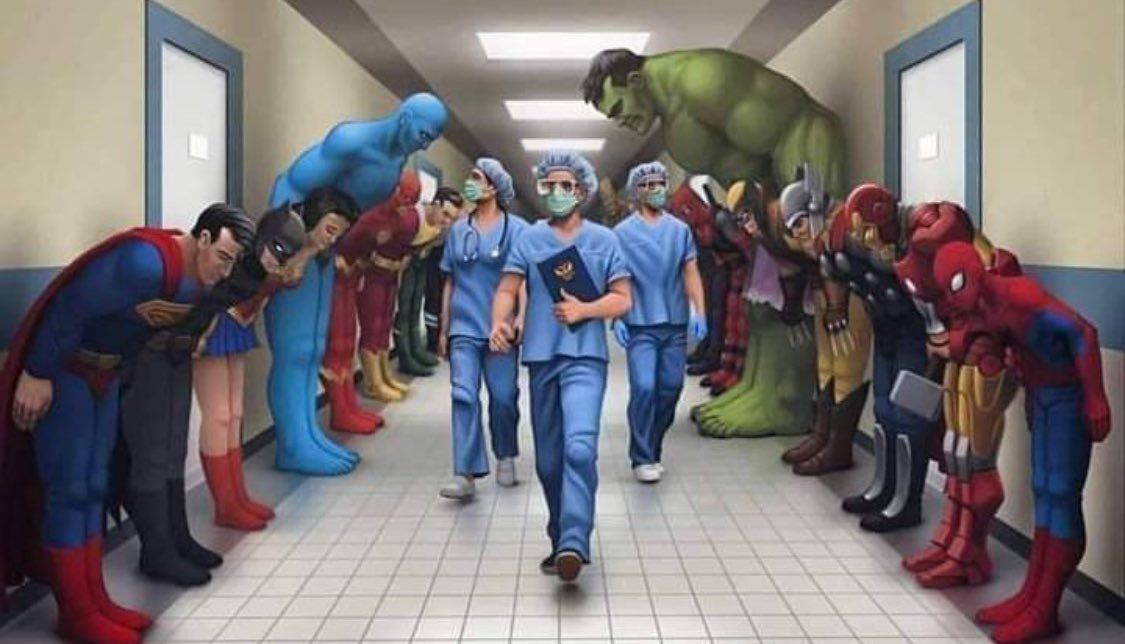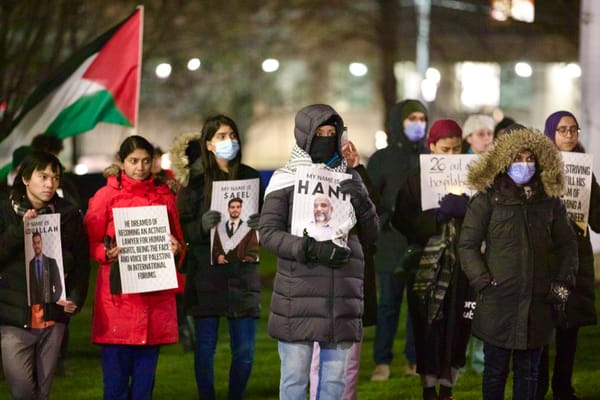Healthcare workers stylized as crime-fighting heroes of Marvel or DC lore have become one of the dominant images of the pandemic. While these images are ostensibly intended to celebrate these workers for their praiseworthy efforts in combating COVID-19, there’s a darker side to this sort of visual framing, one disabled people know all too well. It’s called inspiration porn.
The image below is an example of inspiration porn, as it reinforces to disabled people that our lived experience is viewed by others as an unfortunate happenstance that can be persevered through rather than something to meaningfully live with.

The term inspiration porn was first coined by renowned disability activist and artist Stella Young in an Australian media editorial in 2012. In a 2014 Ted Talk, Young said, “I use the term ‘porn’ deliberately, because they objectify one group of people for the benefit of another group of people. So in this case, we’re objectifying disabled people for the benefit of nondisabled people. The purpose of these images is to inspire you, to motivate you, so that we can look at them and think, ‘Well, however bad my life is, it could be worse. I could be that person.’”
We’re starting to see the same narrative and frame being used to depict healthcare workers, who are morphing in the public imagination into something other than a vital piece to the world’s recovery. They’re becoming representative of a horrific moment in time rather than being valued for their complex contributions in the fight against COVID-19.
Inspiration porn is harmful because it reduces an experience to an image, an unrealistic ideal, an unreachable point. In doing so, the widespread nature of inspiration porn has led to an insidious decline in support for disabled people because society’s only ideas of us are either as the objects of pity or the conquerors of all odds. In reality, being disabled is painfully unremarkable. It’s not that disabled people aren’t fans of inspiration porn because they don’t like being celebrated — it’s because they know fake cheers and acclaim won’t help them escape poverty.
Take Great Britain’s wheelchair rugby team. They were featured heavily in the 2012 London Paralympics’ “We’re The Superhumans” advertising campaign, and yet they found themselves without government funding a few years later because of a change in direction by UK Sport. Imagery that celebrates for the sake of inspiration has no actual interest in protecting the interests of those depicted.
This is now happening to healthcare workers, with disastrous consequences where workers aren’t valued and compensated for their skills, but rather turned into meaningless iconography.
Take, for example, Alberta Premier Jason Kenney, who has publicly celebrated the province’s healthcare workers, calling them “frontline heroes.” Yet just a month before this tweet, his government announced plans to cut around 750 full-time nursing positions by April 1. It remains to be seen whether those cuts will still take place after the pandemic passes. Meanwhile, in the midst of the fight against the pandemic, the Alberta Medical Association has served their government with a statement of claim challenging changes made to their payment structure. Essentially, Kenney’s kind words have done nothing to provide material benefits to healthcare workers.
While healthcare workers are certainly worthy of praise, all too often the use of inspirational imagery is meant to distract from how the government is failing to protect them.
Jillian, a nurse in New York that has pushed back against the ‘hero’ rhetoric, told Slate, “I understand the sentiment. I think most people do that with good intentions. But the wartime rhetoric allows for things to seem like the deaths of health care workers and the illnesses of health care workers were inevitable, and unavoidable, when really we’re being sacrificed by the refusal of the federal government to up its manufacturing of [personal protective equipment].”
She added, “There are so many health care deaths now that it’s hard to keep track. Calling us a hero isn’t going to fix that — actually it makes it worse.”
So, what can we do? The Canadian Federation of Nurses Unions is asking the public to continue pressuring the government to provide more PPE for healthcare workers. Their website links to a page with a form where people can send a tweet to their premier, reading “I call on you to respect the clinical and professional judgement of health care workers in your province to determine the level of PPE they need for #COVID19.”
Calls like these reflect shortages that have been reported across the country this month, with an increasing number of stories about doctors, nurses and other workers falling ill. The fact that those begging for supplies are being put at risk is reason enough to eliminate these meaningless platitudes. Our healthcare workers, just like disabled people, need action and not cartoony cutesyness.






